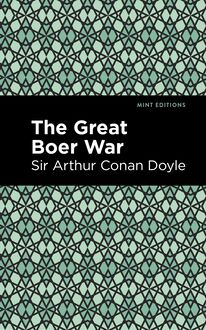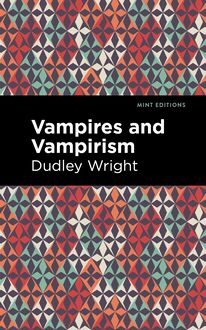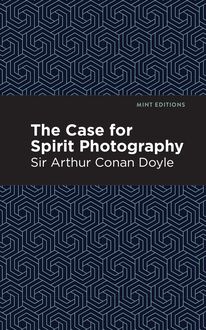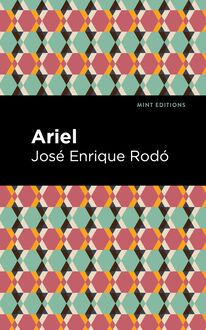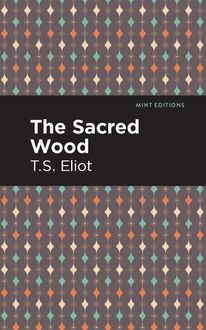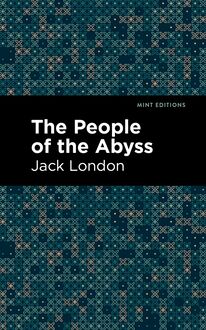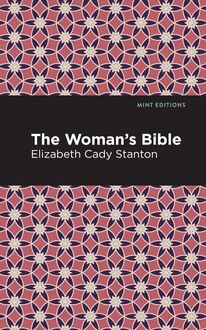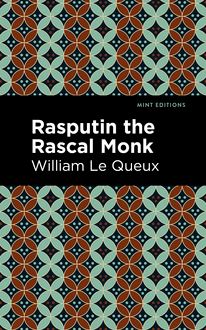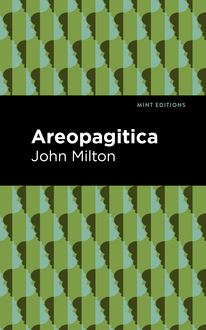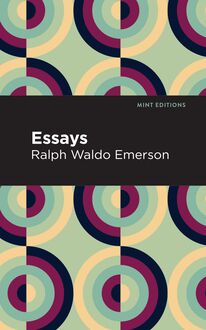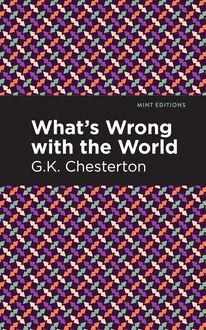-
 Univers
Univers
-
 Ebooks
Ebooks
-
 Livres audio
Livres audio
-
 Presse
Presse
-
 Podcasts
Podcasts
-
 BD
BD
-
 Documents
Documents
-
- Cours
- Révisions
- Ressources pédagogiques
- Sciences de l’éducation
- Manuels scolaires
- Langues
- Travaux de classe
- Annales de BEP
- Etudes supérieures
- Maternelle et primaire
- Fiches de lecture
- Orientation scolaire
- Méthodologie
- Corrigés de devoir
- Annales d’examens et concours
- Annales du bac
- Annales du brevet
- Rapports de stage
La lecture à portée de main
Vous pourrez modifier la taille du texte de cet ouvrage
Découvre YouScribe en t'inscrivant gratuitement
Je m'inscrisDécouvre YouScribe en t'inscrivant gratuitement
Je m'inscrisEn savoir plus
Vous pourrez modifier la taille du texte de cet ouvrage
En savoir plus

Description
Tremendous Trifles is comprised of 39 chapters, each functioning as their own essay or story. With whimsical, light-hearted prose, vivid figurative language, and unparalleled insight, Chesterton covers a variety of philosophical principles of everyday life. Chesterton often used ordinary events and objects to explain deeper matters. Using relatable and accessible examples, Tremendous Trifles also test biases and preconceived ideas, specifically in the cases of fairy tales and folk lore. Stories of these genres are passed down from generation to generation, changed each time they are told, yet usually framed more optimistically than the original tale. Chesterton encourages readers to question this, and examine the implications the example may have on the other stories they hear. Accompanying the suggestion to recognize bias, the importance of one’s point of view is also examined. In Tremendous Trifles, Chesterton uses a metaphor to explain perspective. There are only two ways to see the world—either as a giant, or as a nymph. One sees all the wonders of the world as a speck of dust, the other is in awe of a single blade of grass. While advocating for seeing the beauty in simple, everyday encounters, Tremendous Trifles raises thought-provoking questions and advises that sometimes a better life is just a change of perspective away. Containing both essays of importance and intrigue and stories of silly nature, Tremendous Trifles is the perfect combination of excitement and understanding.
Written in a conversational and intimate format, Tremendous Trifles by G.K Chesterton is a collection of essays and stories that features philosophical theories of happiness, perspective, and narratives. Described as thought-provoking and humorous, Tremendous Trifles educates without the use intimidating or exclusive advice. While celebrating simplicity and encouraging people to find joy in the mundane, Tremendous Trifles uncovers truths about humankind that have remained relevant to modern audiences.
This edition of Tremendous Trifles by G.K Chesterton is now presented in an easy-to-read font and features a striking new cover design. With these accommodations, Tremendous Trifles is restored to modern standards while preserving its original ingenuity.
Sujets
Informations
| Publié par | Mint Editions |
| Date de parution | 09 février 2021 |
| Nombre de lectures | 0 |
| EAN13 | 9781513276526 |
| Langue | English |
Informations légales : prix de location à la page 0,0450€. Cette information est donnée uniquement à titre indicatif conformément à la législation en vigueur.
Extrait
Tremendous Trifles
G.K. Chesterton
Tremendous Trifles was first published in 1909.
This edition published by Mint Editions 2021.
ISBN 9781513271521 | E-ISBN 9781513276526
Published by Mint Editions®
minteditionbooks.com
Publishing Director: Jennifer Newens
Design & Production: Rachel Lopez Metzger
Project Manager: Micaela Clark
Typesetting: Westchester Publishing Services
C ONTENTS I. T REMENDOUS T RIFLES II. A P IECE OF C HALK III. T HE S ECRET OF A T RAIN IV. T HE P ERFECT G AME V. T HE E XTRAORDINARY C ABMAN VI. A N A CCIDENT VII. T HE A DVANTAGES OF H AVING O NE L EG VIII. T HE E ND OF THE W ORLD IX. I N THE P LACE DE LA B ASTILLE X. O N L YING IN B ED XI. T HE T WELVE M EN XII. T HE W IND AND THE T REES XIII. T HE D ICKENSIAN XIV. I N T OPSY -T URVY L AND XV. W HAT I F OUND IN M Y P OCKET XVI. T HE D RAGON ’ S G RANDMOTHER XVII. T HE R ED A NGEL XVIII. T HE T OWER XIX. H OW I M ET THE P RESIDENT XX. T HE G IANT XXI. T HE G REAT M AN XXII. T HE O RTHODOX B ARBER XXIII. T HE T OY T HEATRE XXIV. A T RAGEDY OF T WOPENCE XXV. A C AB R IDE A CROSS C OUNTRY XXVI. T HE T WO N OISES XXVII. S OME P OLICEMEN AND A M ORAL XXVIII. T HE L ION XXIX. H UMANITY : A N I NTERLUDE XXX. T HE L ITTLE B IRDS W HO W ON ’ T S ING XXXI. T HE R IDDLE OF THE I VY XXXII. T HE T RAVELLERS IN S TATE XXXIII. T HE P REHISTORIC R AILWAY S TATION XXXIV. T HE D IABOLIST XXXV. A G LIMPSE OF M Y C OUNTRY XXXVI. A S OMEWHAT I MPROBABLE S TORY XXXVII. T HE S HOP OF G HOSTS XXXVIII. T HE B ALLADE OF A S TRANGE T OWN XXXIX. T HE M YSTERY OF A P AGEANT
I
T REMENDOUS T RIFLES
O nce upon a time there were two little boys who lived chiefly in the front garden, because their villa was a model one. The front garden was about the same size as the dinner table; it consisted of four strips of gravel, a square of turf with some mysterious pieces of cork standing up in the middle and one flower bed with a row of red daisies. One morning while they were at play in these romantic grounds, a passing individual, probably the milkman, leaned over the railing and engaged them in philosophical conversation. The boys, whom we will call Paul and Peter, were at least sharply interested in his remarks. For the milkman (who was, I need say, a fairy) did his duty in that state of life by offering them in the regulation manner anything that they chose to ask for. And Paul closed with the offer with a business-like abruptness, explaining that he had long wished to be a giant that he might stride across continents and oceans and visit Niagara or the Himalayas in an afternoon dinner stroll. The milkman producing a wand from his breast pocket, waved it in a hurried and perfunctory manner; and in an instant the model villa with its front garden was like a tiny doll’s house at Paul’s colossal feet. He went striding away with his head above the clouds to visit Niagara and the Himalayas. But when he came to the Himalayas, he found they were quite small and silly-looking, like the little cork rockery in the garden; and when he found Niagara it was no bigger than the tap turned on in the bathroom. He wandered round the world for several minutes trying to find something really large and finding everything small, till in sheer boredom he lay down on four or five prairies and fell asleep. Unfortunately his head was just outside the hut of an intellectual backwoodsman who came out of it at that moment with an axe in one hand and a book of Neo-Catholic Philosophy in the other. The man looked at the book and then at the giant, and then at the book again. And in the book it said, “It can be maintained that the evil of pride consists in being out of proportion to the universe.” So the backwoodsman put down his book, took his axe and, working eight hours a day for about a week, cut the giant’s head off; and there was an end of him.
Such is the severe yet salutary history of Paul. But Peter, oddly enough, made exactly the opposite request; he said he had long wished to be a pigmy about half an inch high; and of course he immediately became one. When the transformation was over he found himself in the midst of an immense plain, covered with a tall green jungle and above which, at intervals, rose strange trees each with a head like the sun in symbolic pictures, with gigantic rays of silver and a huge heart of gold. Toward the middle of this prairie stood up a mountain of such romantic and impossible shape, yet of such stony height and dominance, that it looked like some incident of the end of the world. And far away on the faint horizon he could see the line of another forest, taller and yet more mystical, of a terrible crimson colour, like a forest on fire for ever. He set out on his adventures across that coloured plain; and he has not come to the end of it yet.
Such is the story of Peter and Paul, which contains all the highest qualities of a modern fairy tale, including that of being wholly unfit for children; and indeed the motive with which I have introduced it is not childish, but rather full of subtlety and reaction. It is in fact the almost desperate motive of excusing or palliating the pages that follow. Peter and Paul are the two primary influences upon European literature to-day; and I may be permitted to put my own preference in its most favourable shape, even if I can only do it by what little girls call telling a story.
I need scarcely say that I am the pigmy. The only excuse for the scraps that follow is that they show what can be achieved with a commonplace existence and the sacred spectacles of exaggeration. The other great literary theory, that which is roughly represented in England by Mr. Rudyard Kipling, is that we moderns are to regain the primal zest by sprawling all over the world growing used to travel and geographical variety, being at home everywhere, that is being at home nowhere. Let it be granted that a man in a frock coat is a heartrending sight; and the two alternative methods still remain. Mr. Kipling’s school advises us to go to Central Africa in order to find a man without a frock coat. The school to which I belong suggests that we should stare steadily at the man until we see the man inside the frock coat. If we stare at him long enough he may even be moved to take off his coat to us; and that is a far greater compliment than his taking off his hat. In other words, we may, by fixing our attention almost fiercely on the facts actually before us, force them to turn into adventures; force them to give up their meaning and fulfil their mysterious purpose. The purpose of the Kipling literature is to show how many extraordinary things a man may see if he is active and strides from continent to continent like the giant in my tale. But the object of my school is to show how many extraordinary things even a lazy and ordinary man may see if he can spur himself to the single activity of seeing. For this purpose I have taken the laziest person of my acquaintance, that is myself; and made an idle diary of such odd things as I have fallen over by accident, in walking in a very limited area at a very indolent pace. If anyone says that these are very small affairs talked about in very big language, I can only gracefully compliment him upon seeing the joke. If anyone says that I am making mountains out of molehills, I confess with pride that it is so. I can imagine no more successful and productive form of manufacture than that of making mountains out of molehills. But I would add this not unimportant fact, that molehills are mountains; one has only to become a pigmy like Peter to discover that.
I have my doubts about all this real value in mountaineering, in getting to the top of everything and overlooking everything. Satan was the most celebrated of Alpine guides, when he took Jesus to the top of an exceeding high mountain and showed him all the kingdoms of the earth. But the joy of Satan in standing on a peak is not a joy in largeness, but a joy in beholding smallness, in the fact that all men look like insects at his feet. It is from the valley that things look large; it is from the level that things look high; I am a child of the level and have no need of that celebrated Alpine guide. I will lift up my eyes to the hills, from whence cometh my help; but I will not lift up my carcass to the hills, unless it is absolutely necessary. Everything is in an attitude of mind; and at this moment I am in a comfortable attitude. I will sit still and let the marvels and the adventures settle on me like flies. There are plenty of them, I assure you. The world will never starve for want of wonders; but only for want of wonder.
II
A P IECE OF C HALK
I remember one splendid morning, all blue and silver, in the summer holidays when I reluctantly tore myself away from the task of doing nothing in particular, and put on a hat of some sort and picked up a walking-stick, and put six very bright-coloured chalks in my pocket. I then went into the kitchen (which, along with the rest of the house, belonged to a very square and sensible old woman in a Sussex village), and asked the owner and occupant of the kitchen if she had any brown paper. She had a great deal; in fact, she had too much; and she mistook the purpose and the rationale of the existence of brown paper. She seemed to have an idea that if a person wanted brown paper he must be wanting to tie up parcels; which was the last thing I wanted to do; indeed, it is a thing which I have found to be beyond my mental capacity. Hence she dwelt very much on the varying qualities of toughness and endurance in the material. I explained to her that I only wanted to draw pictures on it, and that I did not want them to endure in the least; and that from my point of view, therefore, it was a question, not of tough consistency, but of responsive surface, a thing comparatively irrelevant in a parcel. When she understood that I wanted to draw she offered to overwhelm me with note-paper, apparently supposing
-
 Univers
Univers
-
 Ebooks
Ebooks
-
 Livres audio
Livres audio
-
 Presse
Presse
-
 Podcasts
Podcasts
-
 BD
BD
-
 Documents
Documents
-
Jeunesse
-
Littérature
-
Ressources professionnelles
-
Santé et bien-être
-
Savoirs
-
Education
-
Loisirs et hobbies
-
Art, musique et cinéma
-
Actualité et débat de société
-
Jeunesse
-
Littérature
-
Ressources professionnelles
-
Santé et bien-être
-
Savoirs
-
Education
-
Loisirs et hobbies
-
Art, musique et cinéma
-
Actualité et débat de société
-
Actualités
-
Lifestyle
-
Presse jeunesse
-
Presse professionnelle
-
Pratique
-
Presse sportive
-
Presse internationale
-
Culture & Médias
-
Action et Aventures
-
Science-fiction et Fantasy
-
Société
-
Jeunesse
-
Littérature
-
Ressources professionnelles
-
Santé et bien-être
-
Savoirs
-
Education
-
Loisirs et hobbies
-
Art, musique et cinéma
-
Actualité et débat de société
- Cours
- Révisions
- Ressources pédagogiques
- Sciences de l’éducation
- Manuels scolaires
- Langues
- Travaux de classe
- Annales de BEP
- Etudes supérieures
- Maternelle et primaire
- Fiches de lecture
- Orientation scolaire
- Méthodologie
- Corrigés de devoir
- Annales d’examens et concours
- Annales du bac
- Annales du brevet
- Rapports de stage
